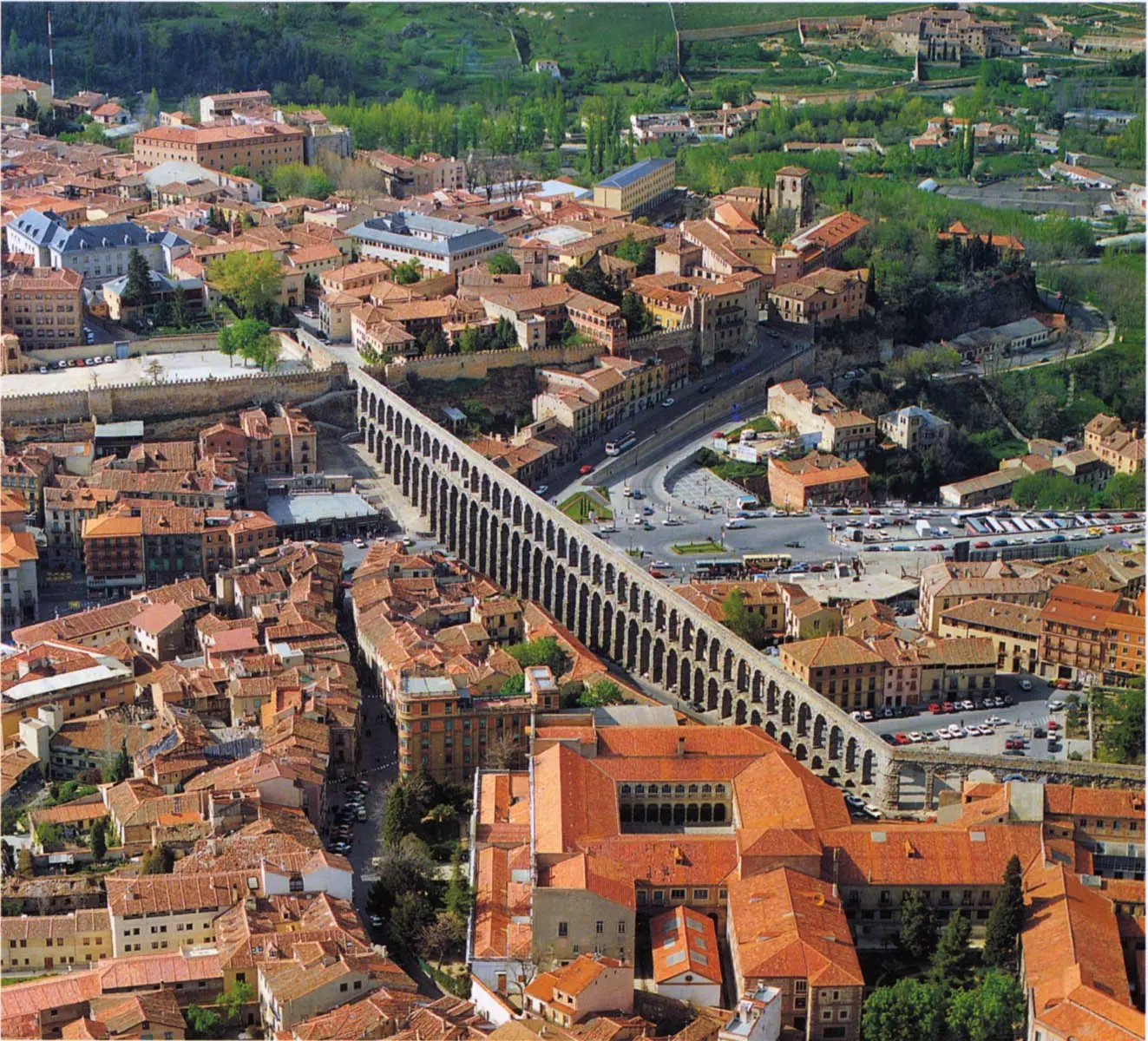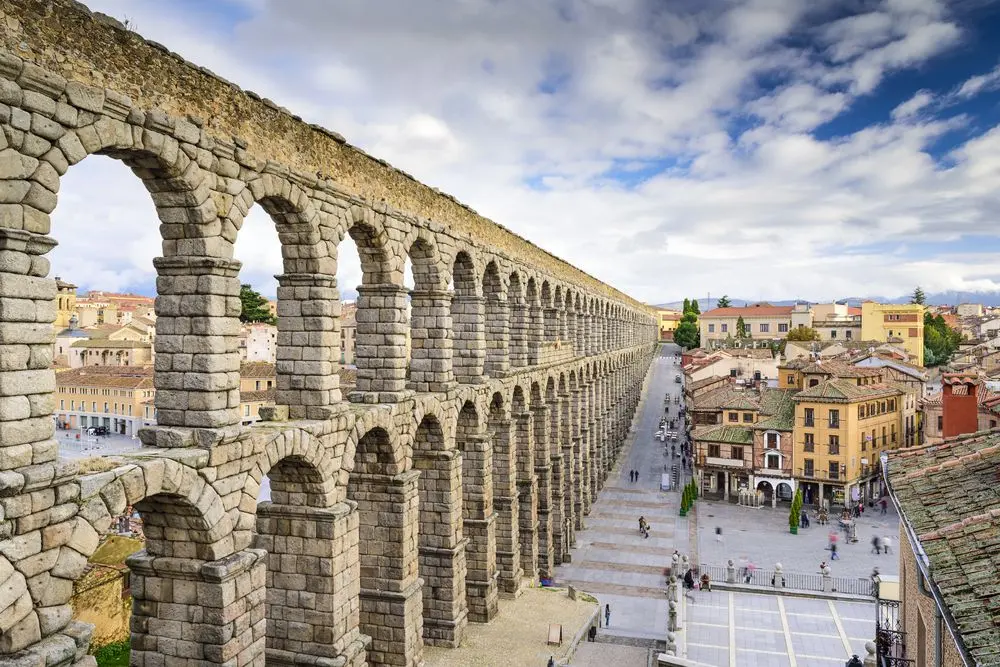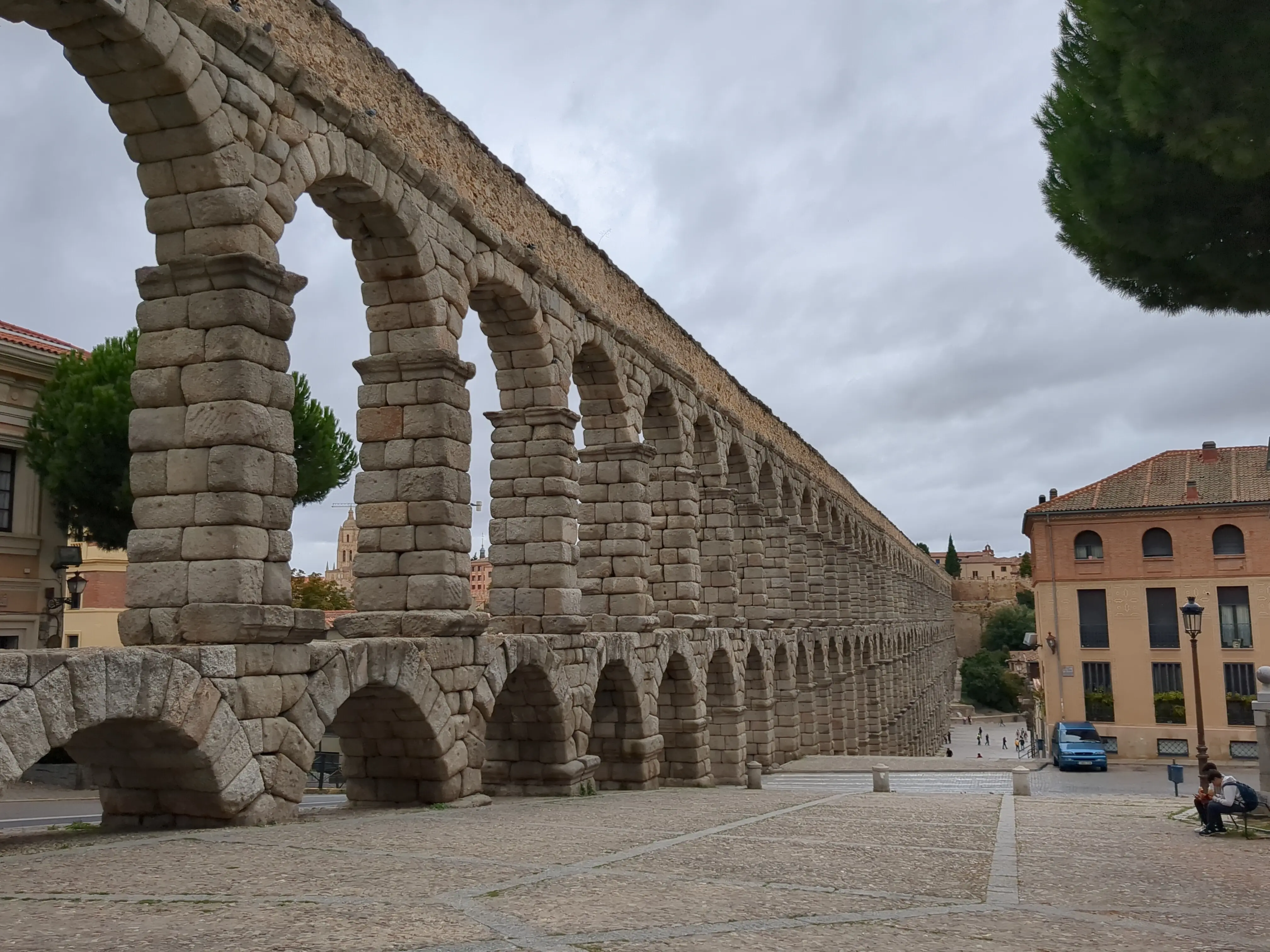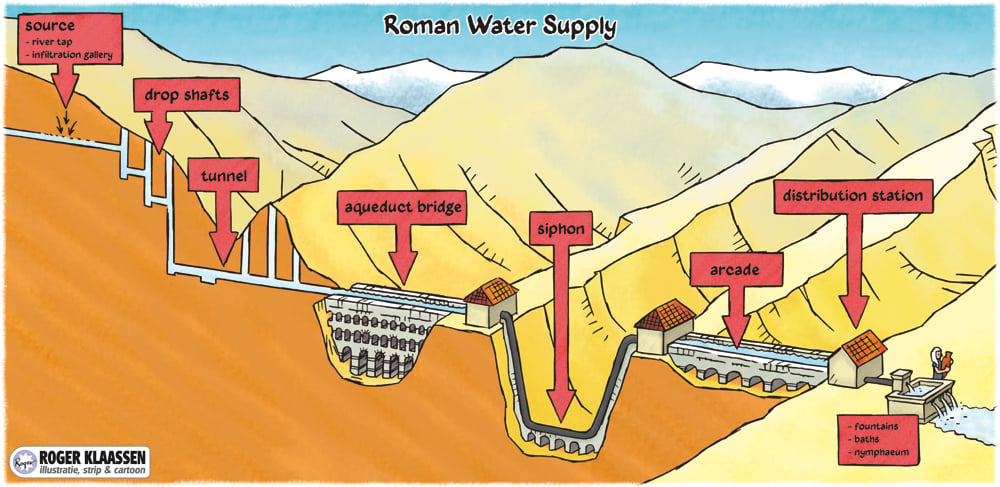I spent way too much time looking for a hidden Saddam Hussein.
Illustrations of history
This magazine is for sharing artwork of historical events, places, personages, etc. Scale models and the like also welcome!
Generally speaking, actual photos of a historical item should go to [email protected]
Photos of ruins should go to [email protected]
Photos of the past should go to [email protected]


The Segovia aqueduct, Spain. It gives you an idea of how insane Roman engineering was.
Wild coincidence, I was just there today. Absolutely stunning to see in person.

Edit: This picture is from the opposite end, before the cool curve.
Count me jealous! What a magnificient piece of architecture
All right, but apart from the sanitation, the medicine, education, wine, public order, irrigation, roads, the fresh water system, and public health...what have the Romans ever done for us??
You forgot language
And the unified currency!
now i want to know how they drilled so deep, vertically and horizontally.
They were very good at sinking shafts. Roman engineering and mining was top of the line. An appalling callousness towards slave and worker casualties incurred in the process helped.
Very cool. I would of thought they used something like the archeamedas screw (oof I butchered his name. Still drinking coffee. Too lazy to Google correct spelling).
Excellent post, Pug
Funny enough, they did use Archimedes' Screw in mining - mostly to pump out water though.
Very true, good catch

How does that siphon work? I would think they would need a pump of some kind, even if it's just a bunch of Roman workers/slaves turning an Archimedes Screw, to get the water to go uphill.
Same way a fuel siphon works, as long as the opening is below the inlet, and the rest of the tube is full and sealed, the water will flow.
How did the Romans seal that apparatus? Cement? Even that would fail rather quickly
Lead Pipes: http://www.romanaqueducts.info/siphons/siphons.htm
Also some terracotta pipes, but not really clear how its sealed.
It never would have occurred to me that siphons work that way, too!
Yeah, but the water pipe goes back up meaning that there is near equal pressure on either side of the U-Siphon, right? Kind of negates the siphon, in a sense?
I'm no fluid dynamics expert. Just a casual Joe.
Its a bad diagram, the other side needs to be lower :/
By why did they even need one here though?
Because it's simpler to build siphons through large valleys instead of 100 meter high 10 kilometer long aqueducts.
But you have to keep water pressure throughout the length of that tube, how did they do that with their materials?
For demonstration purposes only.
Valley was too deep for the aqueduct but they didn’t want to make the drawing taller just for that
Romans were notoriously averse to making drawings taller.
The "pump" is the higher elevation at the source.
If you’ve ever used a siphon to drain a fish tank, it’s a similar concept. I believe the entrance is a bit higher than the exit, so I guess gravity and water pressure?
Not disagreeing with you there,, but if you've siphoned something you've probably done it with a polymer, how the heck were the Romans doing it? You can't get intestines sealed together tightly enough back in those days.
The Romans would often use lead or clay pipes with either dirt or concrete packed around them to make a solid seal that would resist the water pressure and not burst the pipe like a ripe fruit.
It needs to be water pressure because atmospheric pressure can’t lift water more than about 10 metres.
Can somebody please point out which bit is the very large faucet that they turned to send all of that water to LA?
They denied LA much-needed water. The Romans made LA a desert, and called it peace 😔
What is the purpose of the drop shafts?
From Hydraulics of Roman Aqueducts : Steep Chutes, Cascades and Dropshafts (PDF warning):
The designs of dropshaft cascade, as well as steep chute followed by dissipation basin, show that the Roman aqueduct engineers were able to design specific features to cope with steep sections. It remains unclear whether they had some understanding of the hydraulic principles, or worked by observations and trial and error.
Most aqueducts were enclosed (covered) along their entire length, limiting the possibility for gas transfer at the free surface. Thus, the downstream waters were low in dissolved oxygen content unless reoxygenation devices were installed. I suggest that dropshafts may have been introduced in place of steep chutes in order to reoxygenate the water as well as to dissipate the energy of the flow. Aeration technology is commonly used today to reoxygenate depleted waters and to enhance the water quality. I recommend that further work by archaeologists focus on the excavation and survey of chutes and dropshaft to confirm this hypothesis.
Really, really cool stuff
Gonna need a lot of water for that nymphæum 🫧
I had no idea what a nymphaeum was, and somehow I expected it to be some perverted roman thing. Turns out it's just a fountain place used for nymphae cult and some large ones double as a place for weddings...
Won't say what I imagined.
It’s ok we all know what you imagined
🤐
Don't worry, you can enjoy the nymphs at the theatre. Tetimimi. It's a special attraction that's basically a stripper show in a pool.
That's the Rome I know!
Was it a plate of tacos?
Get out of my head.
Ah so now I understand what the arcade map in path of exile is all about.
Not sure what's the difference to a aqueduct though.
Just looked it up because I was wondering as well.
First, the image says "aqueduct bridge" for the first arched bridge, not "aqueduct", because the whole thing you see there is the aqueduct.
Second, while Romans also simply built walls if they didn't need as much elevation (and because they're easier to build than those arches), as soon as you have successive arches, you have an arcade. So in the image, they're both arcades and it's just labeled weirdly.
Frankly, I don't care how it all works as long as my slaves have my bath ready on time and the hypercaust nice and toasty.
